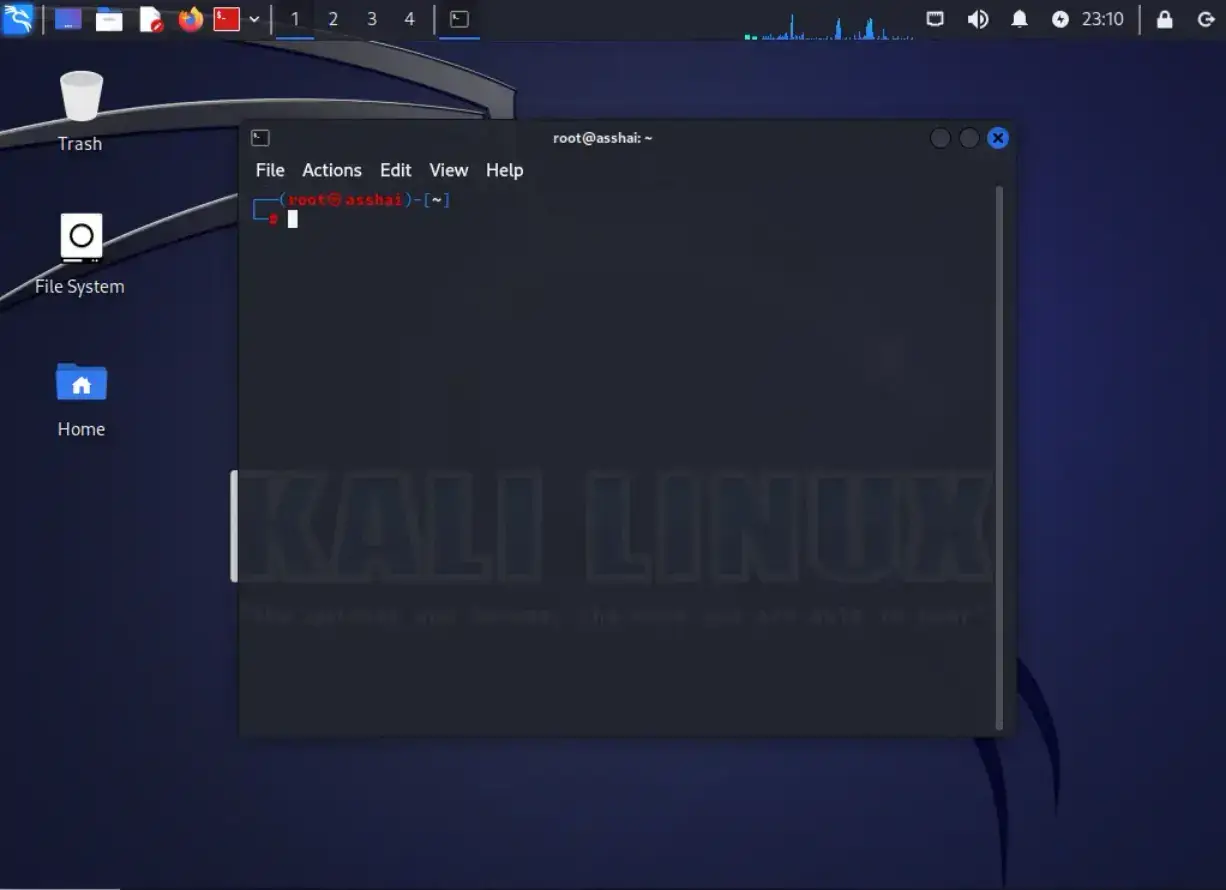
Troubleshooting made easy: Learn fixes and solutions for common Docker errors in this comprehensive guide. Enhance your container management skills and ensure seamless deployments. Table

In this blog post, we’ll explore 10 cool hacks you can perform with Kali Linux, from basic tasks to more advanced techniques.
In today’s digital age, cybersecurity is paramount. Whether you’re a cybersecurity professional, an ethical hacker, or just someone curious about the world of hacking, Kali Linux is an indispensable tool. Known for its robust suite of penetration testing tools, Kali Linux allows users to assess the security of their systems, networks, and applications.

Photo by admingeek from Infotechys
Now let’s review 10 cool hacks you can perform with Kali Linux and unlock the full potential of ethical hacking and penetration testing.
Kali Linux boasts an array of network scanning tools such as Nmap and Netdiscover, empowering users to meticulously scan networks, unveil connected hosts, and amass critical intelligence about network topology and device configurations. Utilize these tools to meticulously map out your network infrastructure, identify potential vulnerabilities, and fortify your defenses against malicious intrusions.
Armed with tools like OpenVAS and Nessus, Kali Linux enables users to conduct thorough vulnerability assessments, scrutinizing system integrity and pinpointing potential weaknesses. By subjecting your systems to rigorous vulnerability assessments, you can preemptively identify and rectify vulnerabilities, thereby fortifying your defenses against potential exploits and cyber attacks.
Kali Linux is equipped with potent password cracking utilities such as John the Ripper and Hashcat, allowing users to gauge the resilience of passwords and identify weak or susceptible credentials. Employ these tools to rigorously test the strength of passwords, bolster authentication protocols, and mitigate the risk of unauthorized access.
With tools like Aircrack-ng and Reaver at your disposal, Kali Linux empowers users to conduct comprehensive assessments of wireless networks, scrutinizing the efficacy of encryption protocols and uncovering potential vulnerabilities. Delve into the realm of wireless network security, assess the robustness of WEP, WPA, and WPA2 encryption protocols, and fortify your wireless defenses against potential exploits.
Kali Linux features an arsenal of social engineering tools, including the Social Engineering Toolkit (SET), facilitating the simulation of phishing campaigns and other social engineering tactics. Harness the power of social engineering simulations to gauge the security awareness of your organization, educate users about common cyber threats, and fortify your defenses against social engineering attacks.
Leveraging tools like Burp Suite and OWASP ZAP, Kali Linux enables users to conduct comprehensive assessments of web applications, scrutinizing for vulnerabilities such as SQL injection, cross-site scripting (XSS), and insecure authentication mechanisms. By subjecting web applications to rigorous penetration testing, you can identify and remediate vulnerabilities, safeguarding against potential cyber threats and data breaches.
Kali Linux provides access to powerful exploitation frameworks like Metasploit, streamlining the process of exploiting vulnerabilities and simulating real-world cyber attacks. Dive into the realm of exploitation frameworks, automate the process of vulnerability exploitation, and fortify your defenses against potential cyber threats.
Kali Linux offers an array of digital forensics tools, including Autopsy and Volatility, facilitating digital forensics and incident response activities. Utilize these tools to meticulously analyze disk images, memory dumps, and other digital artifacts, unraveling the intricacies of security incidents and unauthorized access.
Explore the clandestine world of steganography with tools like Steghide and OutGuess, enabling users to conceal messages or files within other innocuous files. Delve into the intricacies of covert communication, unravel hidden messages, and enhance your understanding of digital concealment techniques.
One of the hallmark features of Kali Linux is its unparalleled flexibility and extensibility, allowing users to customize their installations with additional tools and scripts tailored to their unique requirements. Leverage the power of customization and scripting to streamline common tasks, automate workflows, and enhance productivity in your cybersecurity endeavors.
In conclusion, Kali Linux stands as a cornerstone in the realm of cybersecurity, empowering users with a formidable arsenal of tools and techniques to safeguard against cyber threats. By mastering the ten ingenious hacks outlined in this guide, you can elevate your cybersecurity prowess, fortify your defenses against potential exploits, and emerge as a stalwart guardian of digital security. Remember, with great power comes great responsibility—always utilize these tools ethically and responsibly, adhering to legal and ethical standards in your cybersecurity endeavors.
Did you find this article useful? Your feedback is invaluable to us! Please feel free to share your thoughts in the comments section below.
Related Posts

Troubleshooting made easy: Learn fixes and solutions for common Docker errors in this comprehensive guide. Enhance your container management skills and ensure seamless deployments. Table

In this blog post, we’ll explore the 10 major differences between Ubuntu 20.04 and its latest iteration, Ubuntu 22.04, shedding light on the advancements that await

In this blog post, we’ll delve into the 10 major differences between Red Hat and Kali Linux, shedding light on their unique features, use cases,
